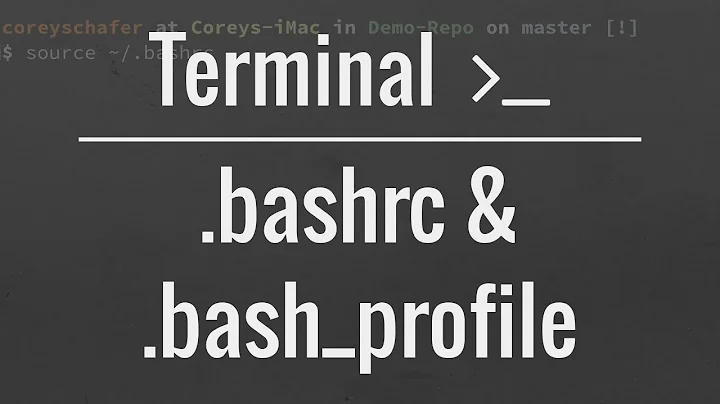How to add a line into rc.local with shell
16,284
Solution 1
Use Sed
For Test
sed -e '$i \nohup sh /bocommjava/socket.sh &\n' rc.local
Really Modify
sed -i -e '$i \nohup sh /bocommjava/socket.sh &\n' rc.local
Solution 2
The easiest would be to use a scripted language (ex: python, perl, etc...).
#!/usr/bin/env python
import os
with open('/etc/rc.local') as fin:
with open('/etc/rc.local.TMP') as fout:
while line in fin:
if line == 'exit 0':
fout.write('nohup sh /bocommjava/socket.sh &\n')
fout.write(line)
# save original version (just in case)
os.rename('/etc/rc.local', '/etc/rc.local.jic')
os.rename('/etc/rc.loca.TMP', '/etc/rc.local')
Related videos on Youtube
Author by
missingcat92
Updated on September 15, 2022Comments
-
missingcat92 3 months
I am working on a Ubuntu 12.04 and writing a environment-auto-build shell. In the shell I need to change something in rc.local.
This is my rc.local now.
#!/bin/sh -e #...... exit 0I want to modify it like this:
#!/bin/sh -e #...... nohup sh /bocommjava/socket.sh & exit 0Now I use nano to modify it, is there any command that can insert the line into rc.local?
-
missingcat92 over 9 yearsWell, this works fine, but I still want a shell solution. Thanks a lot!
-
 user590028 over 9 yearsQuite a bit more code in basic shell. Check out bash.cyberciti.biz/file-management/read-a-file-line-by-line
user590028 over 9 yearsQuite a bit more code in basic shell. Check out bash.cyberciti.biz/file-management/read-a-file-line-by-line -
missingcat92 over 9 yearsyes, this command works. But what does $i mean? I checked many sed article, didn't found the answer. Thank u so much!
-
 sigmalha over 9 years$i should be divide into '$' and 'i'. '$' means the last line, 'i' means insert before the current line, so '$i' means insert before the last line.
sigmalha over 9 years$i should be divide into '$' and 'i'. '$' means the last line, 'i' means insert before the current line, so '$i' means insert before the last line. -
 KajMagnus almost 8 yearsYou might want to check
KajMagnus almost 8 yearsYou might want to checkif [ "`tail -n1 /etc/rc.local`" != "exit 0" ]; then ...in case someone has appended a blank line. — It wouldn't be fun to notice some weeks later that the service actually didn't restart, when the machine was rebooted



